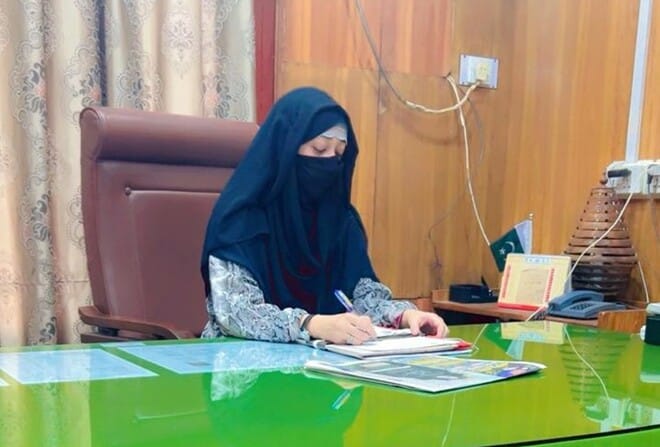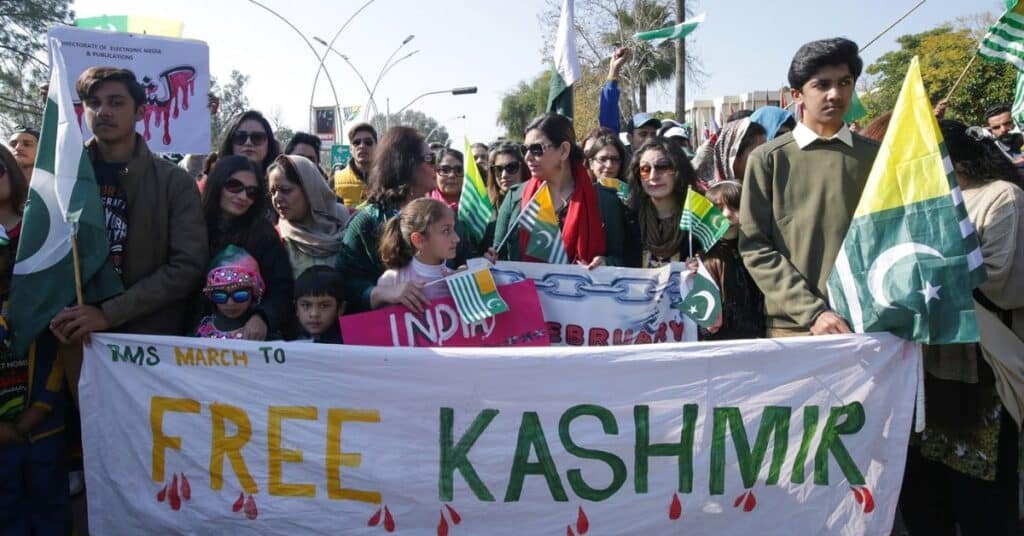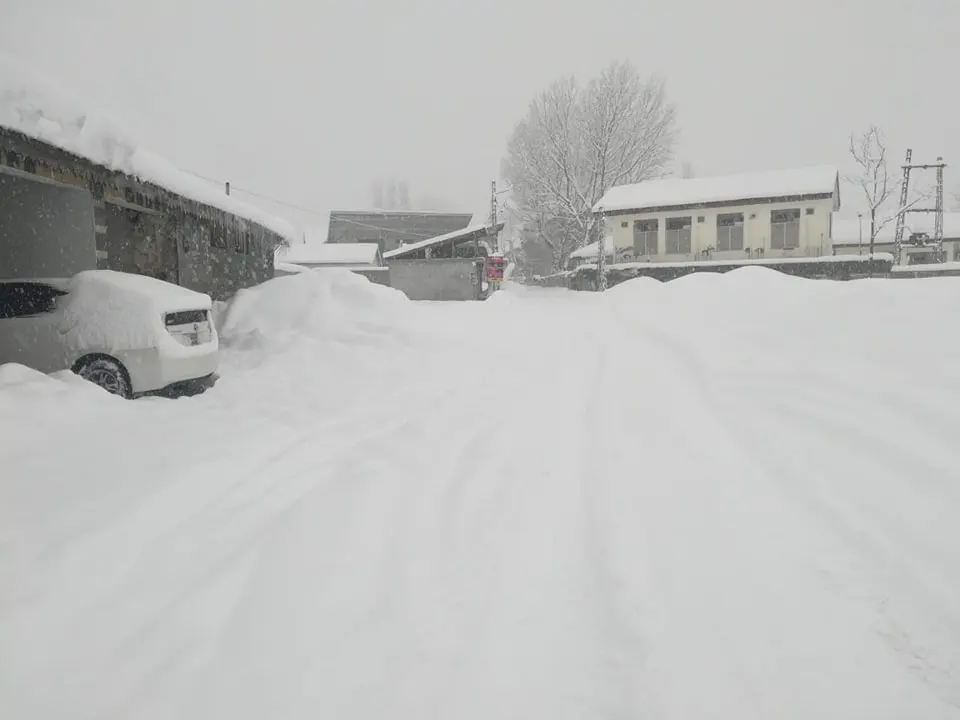In the past, matters like land ownership, inheritance rights, or the collection of agricultural tax and irrigation were always considered the work of male officers. However, in recent years, the provincial government has appointed women as Tehsildars and Naib Tehsildars and has tried to change this mindset.
Lubna Haleem is the first Naib Tehsildar in the history of Khyber Pakhtunkhwa. This Naib Tehsildar, who has a Master’s in Biotechnology, has been serving in the Board Revenue and Estate Department for the past five years.
In 2018, for the first time in Khyber Pakhtunkhwa, women Tehsildars and Naib Tehsildars were seen handling matters in government offices and in the field.
When a citizen steps into Lubna Haleem’s office with complaints related to land ownership, inheritance rights or any case, or when people catch her eye while collecting agricultural tax and irrigation in the field, they definitely express surprise. For her family, the job of a Tehsildar was also considered a man’s job, but her father supported her.
“When I started this job, my family did not know about it. So after some time, when they saw me working, they came to know that women can do this job. My family is proud that our daughter is a Tehsildar,” she said.
She says that when she resolved two land cases at the beginning of her career, she realised her potential that both men and women can do the job. Librarying a case Lubna Haleem said that whenever she passes through the area, she feels that she has given the residents their rights.
‘Regi is a difficult and complicated area where someone had illegally occupied the land of a doctor, and he was close to retirement, and he wanted to build a house there. But the occupants were not letting him build a house.
We took the matter seriously and informed the relevant police stations, and started an operation against encroachment. During this operation, we got 60 kanals of land and later handed it over to the original owners. Now, four years have passed since the incident. People have even built houses there now.’
Peshawar’s Naib Tehsildar Lubna Haleem said she believes women should be brought into administration because when ordinary women see female officers like themselves in offices, they feel confident.
‘Not only female officers but also female stamp vendors and female lawyers should be made a part of this system. They should be given stamp vendor licenses. If some women hesitate to come to the tehsil offices due to obstacles, when they see that women like them are there, not only will they come themselves, but they will also get the opportunity to know about their rights and will also know what is written on the stamp paper.’
Humayun Akhund, a trainer in revenue matters in Khyber Pakhtunkhwa and Balochistan and a veteran revenue officer, also agrees with Lubna Haleem. He says that the presence of female Tehsildars is necessary not only in the field but also in the offices to resolve the problems of ordinary women. Currently, eight women Tehsildars and ten Naib Tehsildars are working in Khyber Pakhtunkhwa.
“If female officers are present in the field, they will be able to better understand the problems of ordinary women who come to the Patwari, Service Delivery Centre or other land-related matters for help. A female officer will be able to listen to and solve these problems better than a male officer.”
According to women’s rights activists, after the merger of tribal districts with Khyber Pakhtunkhwa, the land settlement process is underway there, for which female officers should be sent there to protect women’s inheritance rights.
Women in Khyber Pakhtunkhwa are often deprived of inheritance. Not only are women reluctant to claim their rights, but even if a male relative gives land to his sister or daughter, instead of recognising it as an inheritance, they say, “This is your dupatta” or “This is your chador.” Shawl.
Read also: KP govt reshuffles 8 senior officers of various cadres





